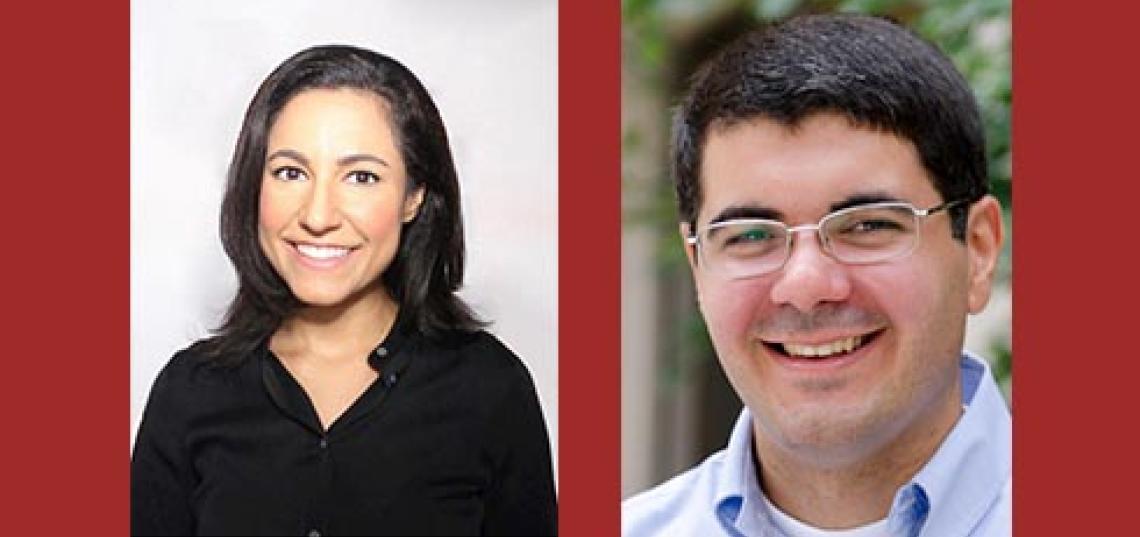
A new Rutgers study investigating the online experiences of individuals lacking the words to discuss their trauma underscores the importance of designing online spaces that are empathetic, inclusive, and supportive of trauma survivors.
“Survivors of traumatic experiences often avoid reporting their experiences to friends, family, and professionals due to their fear that the trauma will become attached to their identities,” the study’s co-author, SC&I Ph.D. student Casey Randazzo, said. “For this study, we explored how technology has either helped them find the words to unmute or has silenced them further.”
Randazzo and her co-author, Assistant Professor of Library and Information Science Tawfiq Ammari, will present their paper, “’If Someone Downvoted My Posts—That’d Be the End of the World’: Designing Safer Online Spaces for Trauma Survivors,” at the CHI’23 conference being held April 23-26, 2023 in Hamburg, Germany.
Randazzo and Ammari studied trauma survivors, she said, because “scholars are still uncovering how social media platforms impact trauma survivors and their recovery, even though trauma is a common experience—over 70% of adults in 24 countries have experienced trauma.”
Providing safe online spaces where survivors can openly discuss the trauma they’ve experienced is linked to healing, Randazzo said. “Disclosure can be a vital component of healing because telling someone about a traumatic event—whether to a trusted friend or health care provider—is considered an initial step in recovery, while a lack of disclosure can severely affect mental health and well-being.”
Also problematic, Randazzo said, is that “disclosure literature often focuses on individuals who have a basic understanding of their experiences, focusing less on muted groups. Muted groups are individuals who lack the words to name or describe their trauma. Although they may feel symptoms (e.g., depression, anxiety), muted groups can't explain why because their experiences don't fit common definitions for domestic violence. A lack of language can limit access to health resources and diagnosis. Muted groups can face difficulty accessing this language in their day-to-day lives. That's why this study includes online spaces where trauma narratives are often commonplace such as true crime communities.”
“Scholars are still uncovering how social media platforms impact trauma survivors and their recovery, even though trauma is a common experience—over 70% of adults in 24 countries have experienced trauma.”
To conduct their research, Randazzo and Ammari completed in-depth interviews with participants who identify as trauma survivors; describe themselves as muted; and are part of online communities where trauma narratives are commonplace (e.g., trauma support groups, true crime media communities, and missing person forums).
Randazzo and Ammari also found that it is vital for trauma survivors to find safer alternatives to current online communities, Randazzo said. “We found that some trauma survivors often feel overwhelmed even by the names of some current online support groups that symbolize the experiences they are trying to distance themselves from. So our paper stresses the importance of exploring alternative online spaces.”
One alternative online space Randazzo and Ammari found that has been helpful for trauma survivors are online true crime communities, Randazzo said. “True crime communities can provide a safe space for survivors to access trauma narratives from a distance. In this sense, true crime spaces bear the weight of identity-based stigmas, making information, social support, and health resources more accessible to survivors.”
Randazzo said their paper’s findings can be used widely by trauma survivors, health practitioners, and social media platform designers/engineers.
Trauma survivors can use their findings, Randazzo said, to help them “Understand how alternative spaces like true crime communities can offer them a way to engage with trauma narratives without necessarily identifying as a survivor themselves. This can be especially helpful for survivors who are still in the process of processing their trauma and may not be ready to fully identify with it. These alternative spaces can also help them feel less alone and provide them with the language needed to unmute and share their own stories.”
Providing safe online spaces where survivors can openly discuss the trauma they’ve experienced is linked to healing, Randazzo said.
Their research can help health care practitioners, Randazzo said, because it can help them better understand the barriers that survivors of trauma face in seeking support and help. “Health care professionals can offer alternative ways for survivors to access support,” Randazzo said, “for instance by suggesting that their patients who are trauma survivors investigate online true crime communities or other alternative spaces where they may feel more comfortable accessing resources and sharing their experiences.”
It is also important, Randazzo said, that healthcare practitioners are mindful of the language they use and the titles of support groups they offer to ensure that they are not inadvertently creating barriers for survivors.
Social media platform designers and engineers, Randazzo said, can benefit from their research by better understanding how important it is for them to take into consideration the needs of marginalized and muted groups when they are designing online support spaces.
“Designers need to become more aware of the stigmas and sensitivities associated with trauma, so they create online spaces that are inclusive and accessible to all survivors,” Randazzo said. They can also, she said, become “more aware of the power of storytelling and ‘narrative transportation’ in supporting survivors of trauma. By incorporating elements of storytelling into their designs, social media platform designers can help survivors make sense of their experiences and feel less isolated.”
Randazzo also noted that academic researchers can also benefit from their findings by being more inclusive of muted groups in their own research and by improving the accessibility of resources for survivors.
Discover more about the Ph.D. Program and the Library and Information Science Department on the Rutgers School of Communication and Information website.
